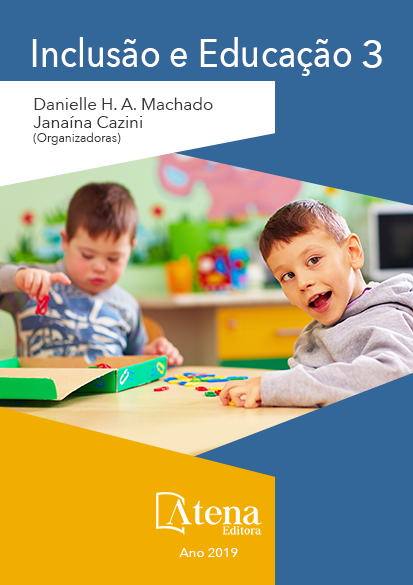
Bonecas com deficiência: práticas pedagógicas na educação infantil
Trabalhar com as diferenças é um
dos grandes desafios educacionais do Século
XXI. As bonecas são artefatos culturais que
disseminam verdades sobre corpo e subjetivam
as crianças. Este artigo objetiva discutir os modos
como as estudantes do curso de Pedagogia
operam com bonecas cegas, surdas e com
deficiência física durante práticas pedagógicas
na educação infnatil. O percurso metodológico
consistiu em as estudantes desenvolverem
uma investigação inicial sobre os tipos de corpo
de bonecas disponibilizados para as crianças
brincarem em escolas públicas. Depois,
confeccionaram bonecas com deficiência física
e/ou sensorial e realizaram práticas com as
crianças nas escolas infantis. Tais práticas foram
documentadas e compartilhadas em seminário
realizado ao final da disciplina de Metodologia
da Educação Infantil. As análises mostraram
que práticas com as bonecas não somente
criaram possibilidades para fazer emergir as
dúvidas das próprias estudantes no sentido
de nomear e se relacionar com pessoas com
deficiência, como também, mostraram que as
crianças estão atentas e curiosas com relação a
esse tema. Durante as brincadeiras com essas
bonecas, as estudantes e as crianças criaram
jogos dramáticos que romperam barreiras e
garantiram igualdade de direitos. O estudo
promoveu a desnaturalização das brincadeiras
de bonecas e colocou em suspenso a inocência
desses brinquedos, instigando as estudantes
de Pedagogia a produzir brinquedos “outros” e
a mediar a inserção da temática da deficiência
nas brincadeiras das crianças.
Bonecas com deficiência: práticas pedagógicas na educação infantil
-
DOI: 10.22533/at.ed.3151915019
-
Palavras-chave: bonecas, educação infantil, formação de professores.
-
Keywords: dolls, child education, teacher training
-
Abstract:
Working with differences is
one of the great educational challenges of
the 21st Century. Dolls are cultural artifacts
that disseminate truths about the body and
subjectivize children. This article aims to discuss
the ways in which students of the Pedagogy
course operate with blind, deaf and physically
handicapped dolls during pedagogical practices
in infnatil education. The methodological course
consisted of students developing an initial
investigation into the body types of dolls made
available for children to play in public schools. They then made dolls with physical and
/ or sensory disabilities and engaged in practices with children in children’s schools.
These practices were documented and shared in a seminar held at the end of the
discipline of Child Education Methodology. The analyzes showed that practices with
the dolls not only created possibilities to raise the doubts of the students themselves
in the sense of naming and relating with people with disabilities, but also showed that
the children are attentive and curious about this theme. During the games with these
dolls, students and children created dramatic games that broke down barriers and
guaranteed equal rights. The study promoted the denaturalization of doll games and
put the innocence of these toys in abeyance, instigating Pedagogy students to produce
“other” toys and mediating the insertion of disability in children’s play.
-
Número de páginas: 15
- circe mara marques


